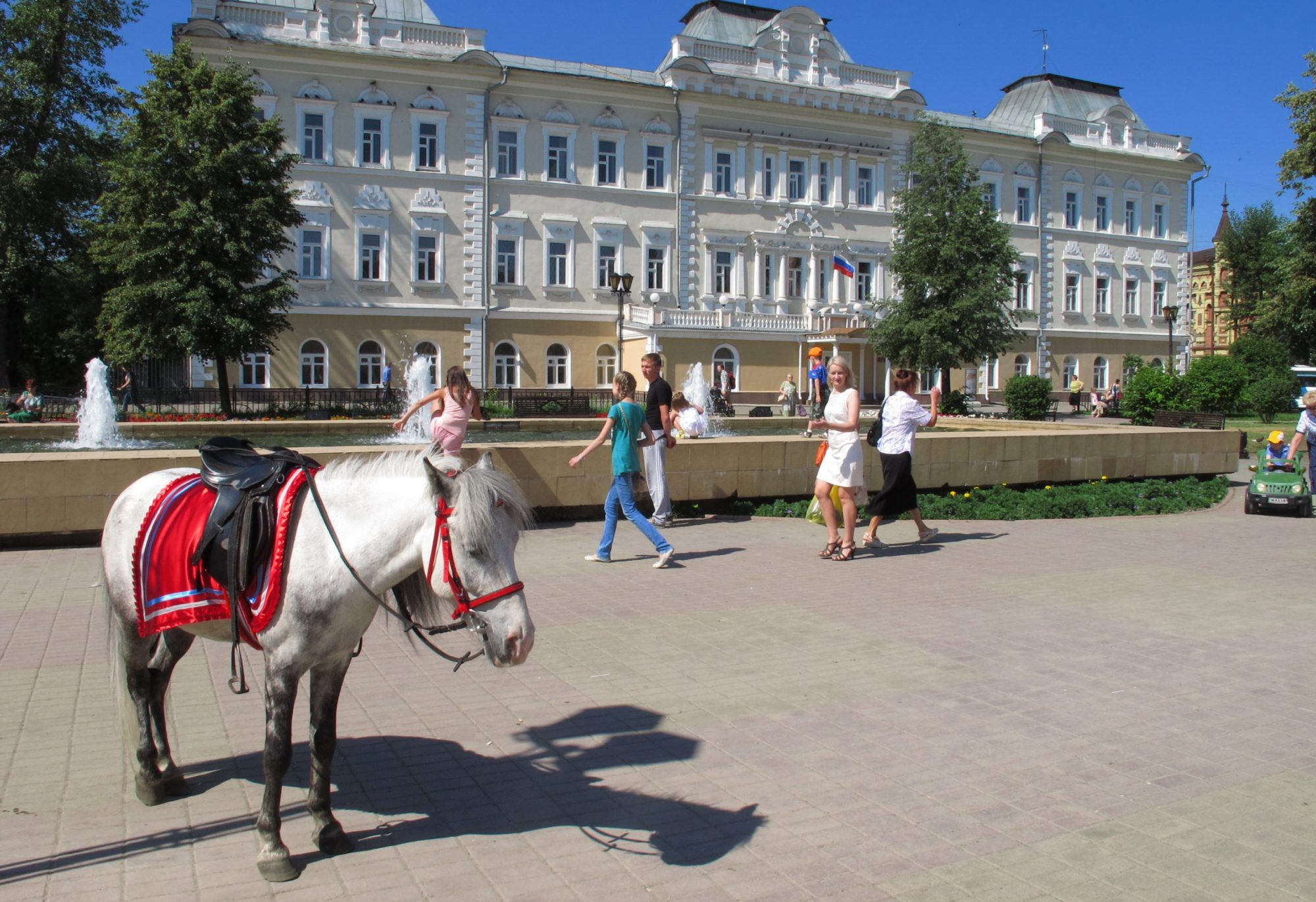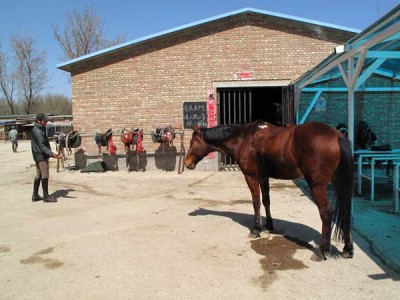In the country’s richest city recently I visited somewhere I’ve long wanted to see, one of Shanghai’s very first equestrian clubs. Like Equuelus and Sheerwood clubs in Beijing, the Jialiang Equestrian Club shares its space with a large dog-kennel.
Unlike the Beijing clubs, but in common with other clubs in Shanghai, the Jialiang has a (500m) racing track. It’s for group activities and private races, I was told. I was impressed with the horse care at this small club. Grooms seem on first terms with the well-fed and well-groomed horses. Most of the Jialiang’s 21 horses are bred here at the facility on San Lu road in Pudong district.
The horses share the space with several hundred dogs – the Jialiang K-9 Kennel Shanghai Club is one of the first such establishments to cash in on a need among Shanghai’s wealthy for kenneling services. Local man Jialiang Wang opened the kennel in 1980 and today it’s clear his dog trainers and vets are in demand in a city as big as this and as rich as this.
It’s not clear if horses are also treated at the Shanghai United Animal Hospital, on another facility. My steed for the hour, six-year old Ella was born at the stables, a rambling friendly kind of place you expect of animal/horse lovers.
The facility used to in the “Pudong countryside” – there isn’t much countryside left in Pudong and the new apartment blocks are already closing in on Jialiang’s space. No chance then of the club being expanded but it seems strange not to use the several acres taken up by an apparently unused mini race track for an outdoor arena. The indoor arena is hardly big enough for more than three riders to use independently at any one time.
Riding at the same time as me confirmed what I’ve noticed often around China: local riders want speed. He seemed frustrated when he couldn’t move his mount (an Argintenean polo pony, he explained) into a canter and seemed disinterested in the trot.
Once dismounted horse was handed, valet style, to a waiting stable hand and rider went to his car. No need for grooming.
Prices range from 430 per 45 min with a Chinese speaking coach, or 530 with an English speaking trainer. Classes of three-five people cost 350 or 430, depending on if you have a local or multilingual coach.
Jialiang also caters to large groups of up to 50 people with prices ranging from 200 per person to 130 if you buy up to 8 hours. A group of 50 can use a maximum of 10 horses (groups of up to ten share a maximum of three horses). I like the small print: “Dining not included.”






